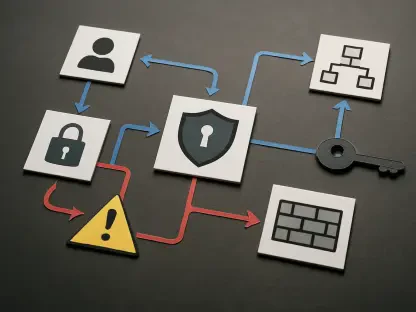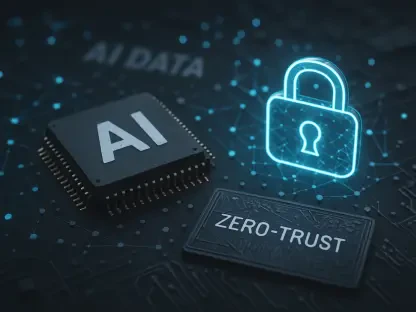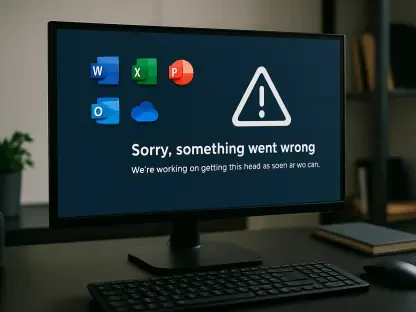The realm of online gaming has transformed significantly, integrating aspects like social interactions, economic systems, and digital asset management. Players must prioritize cybersecurity to protect their in-game progress, digital identity, and financial assets. As gaming continues to evolve, blockchain technology and decentralized systems exemplify this change, offering in-game assets and currencies with real-world value. Understanding these dynamics and securing one’s digital presence has become crucial for gamers navigating this multifaceted landscape. This article explores the cybersecurity challenges and offers practical measures to safeguard digital assets in the evolving landscape of online gaming.
Understanding the Digital Arena
The Evolution of Gaming
Online gaming now transcends traditional entertainment, becoming intertwined with social interaction and economic activity. This shift is largely attributable to advancements like blockchain and decentralized systems that enable players to engage with platforms where in-game assets carry real-world significance. These changes highlight the necessity for gamers to adapt to new paradigms where virtual possessions extend beyond mere gameplay accessories to influential components of their digital identity. As such, the ability to manage and secure these assets is becoming as crucial as the gaming experience itself. The evolving role of blockchain and decentralized systems in gaming necessitates a comprehensive understanding and strategic approach to the protection of both digital assets and identities.
The incorporation of blockchain technology introduces a decentralized aspect to gaming ecosystems, transforming how players interact with digital content. As decentralized platforms gain popularity, gamers can control their assets independently, leading to a realm where virtual assets possess tangible value that extends beyond mere gameplay. This decentralization empowers gamers to engage in economic activities within virtual environments, making cybersecurity measures imperative for safeguarding these digital possessions. The growing interconnection between financial instruments and gaming assets calls for an elevated focus on cybersecurity to protect sensitive data and manage emerging threats. This understanding is vital for gamers as they navigate an increasingly complex digital landscape that merges entertainment with economic elements.
The Importance of Cybersecurity
The intertwined nature of modern gaming with financial instruments underscores the importance of adopting robust cybersecurity measures. As transactions and economic activities become integral to gaming, players must pivot from solely focusing on entertainment-driven experiences to embracing a security-centered approach to safeguard their digital identities and assets. The digital realm’s expansion necessitates that players be vigilant and informed about potential vulnerabilities and threats to maintain a secure environment. Recognizing the value and significance of cybersecurity in gaming is no longer optional but essential in securing one’s investments within the virtual arena. Understanding how cybersecurity affects gaming transactions and economic interactions empowers players to take proactive steps in protecting their digital possessions.
Players face the challenge of securing personal data and assets from cyber threats in an environment where financial operations are part of the gaming ecosystem. The increase in digital transactions creates opportunities for malicious actors to exploit vulnerabilities inherent in gaming platforms. Adopting strong cybersecurity practices, such as using secure connections and authentication methods, helps protect sensitive information and mitigate risks associated with financial activities within games. As in-game assets become more valuable, safeguarding digital possessions requires an informed approach, taking into account current threats and trends. This shift toward security-conscious gaming ensures players can enjoy seamless experiences without compromising their digital assets and identity.
Cyber Threats in Gaming
Account Hacking
Account hacking represents a profound threat to online gamers, with weak password practices and password reuse often leading to unauthorized access. Such breaches can result in the significant loss of gaming progress and financial assets linked to gaming accounts, especially when credit card details are tied to them. To counteract these vulnerabilities, employing password managers to create unique, robust passwords serves as a foundational security measure. Implementing two-factor authentication offers an additional layer of protection, requiring users to verify their identity through secondary means, thus reducing the risk of unauthorized access. Embracing these preventative measures is critical to maintaining the integrity and security of gaming accounts.
A prevalent issue exacerbating account hacking is the unsafe use of public Wi-Fi networks, allowing cybercriminals to intercept and access unsecured data. When gamers connect through public networks, they expose their accounts to potential hacking attempts, risking significant data loss. This exposure necessitates caution when accessing gaming accounts remotely, with recommendations to use secure home networks or employ VPN services for encrypted connections. Adopting cybersecurity tools such as VPNs helps safeguard communications and protect sensitive data from unwarranted access. As the gaming community grows, emphasizing account security through education and access to cybersecurity tools is vital in preemptively addressing hacking threats and ensuring that digital assets remain untouched by malicious actors.
Social Engineering Threats
Social engineering poses a growing threat to online gamers, exploiting human psychology to manipulate individuals into divulging sensitive information. Hackers often impersonate trusted figures like game officials or acquaintances to gain access to private details crucial for identity theft or account breaches. Platforms such as Discord, Telegram, and X, formerly known as Twitter, serve as venues where these exploits often occur, highlighting the need for vigilance and discernment in the digital communicative space. Gamers ought to approach unsolicited information requests with skepticism and establish verification protocols to ascertain the legitimacy of any claims. Protecting private keys and recovery phrases through stringent verification can safeguard against manipulative cyber activities.
Cybercriminals often employ tactics that mimic legitimate requests, persuading gamers to release personal data under false pretenses. Hence, fostering awareness about such deceptive practices is essential for bolstering one’s defenses against social engineering. Introducing educational initiatives to inform gamers about these threats is an effective preventive measure, empowering users to recognize red flags and protect themselves. Cultivating a culture of skepticism and scrutiny, alongside direct verification routines through official channels, establishes a solid defense against these manipulative tactics. As online interactions are integral to gaming today, ensuring that players remain informed and prepared to counter social engineering is pivotal in minimizing risks and maintaining secure digital profiles.
Technological Defenses
Advanced Encryption and Cold Wallets
Phishing attacks present significant risks to gamers, seeking to capture sensitive information through deceptive interfaces and methods. Advanced encryption plays an indispensable role in protecting against these threats, encouraging gamers to utilize Web3 wallets with robust security protocols and multiple authentication layers. These wallets encrypt data, rendering it inaccessible to unauthorized parties and preserving the integrity of users’ assets. Selecting wallets with strong encryption features and adopting practices that safeguard recovery phrases significantly enhances protection and mitigates phishing risks. By employing technologically advanced wallets, gamers can prevent unauthorized access and secure their digital possessions from phishing attacks.
Cold wallets offer an additional layer of protection by keeping digital assets offline, away from potential computer-based attacks. These devices provide storage that isn’t connected to the internet, thus avoiding risks associated with online vulnerabilities. Using cold wallets helps gamers safeguard their assets from hackers attempting to exploit digital weaknesses. The dual approach of using advanced Web3 wallets and implementing cold wallets creates a fortified defense against threats targeting digital assets. This combination ensures the safety of gaming commodities, allowing players to enjoy digital gaming landscapes without fear of asset compromise through malicious intrusions. Utilizing these comprehensive technological defenses highlights the importance of proactive measures in maintaining cybersecurity.
Defending Against DDoS Attacks
Distributed Denial of Service (DDoS) attacks remain one of the more disruptive threats within the gaming sector, directly targeting game servers to cripple performance and infrastructure. Although individual players have limited capacity to directly address DDoS attacks, selecting platforms equipped with inherent DDoS protection or employing Virtual Private Networks (VPNs) offers mitigation benefits. These strategies provide encrypted connection pathways, reinforcing server security and preserving gameplay integrity during competitive matches. Ensuring uninterrupted access to gaming experiences while mitigating the negative impacts of DDoS threats becomes paramount for gamers committed to participating in esports or live streaming events, where server stability is crucial.
Recognizing the impact of DDoS attacks, players must also be informed about platform security measures and the effectiveness of VPN services in sustaining stable connections in the face of such intrusions. By fostering knowledge about encrypted communication techniques, gamers can reinforce their defenses against server disruptions caused by DDoS attacks. Selecting games and platforms with built-in protective measures provides invaluable reassurance, while the adoption of secure connection protocols stands as a testament to the commitment to stable, reliable gaming experiences. This layered defensive strategy against DDoS intrusions ensures that virtual environments continue to operate seamlessly, supporting competitive and casual gaming activities alike.
Developing a Cybersecurity Mindset
Awareness and Education
A comprehensive understanding of cybersecurity involves combining technological solutions with an active, informed mindset, underscoring the importance of awareness and education among gamers. Players should actively learn about potential cyber threats and cultivate behaviors that promote vigilance, ensuring protection of their digital possessions. Developing habits centered around skepticism and verification empowers gamers to navigate digital interactions safely, minimizing exposure to harmful elements like phishing schemes and social engineering exploits. Educational resources must focus on equipping players with knowledge about emerging threats and defense strategies, fostering a community poised to preemptively tackle cybersecurity challenges and safeguard their virtual livelihoods.
Engaging with cybersecurity education not only serves individuals but also strengthens community resilience against pervasive threats targeting online gaming environments. Knowledge-sharing initiatives and workshops centered on cybersecurity challenges deliver practical insights, enhancing collective preparedness and response capabilities. Encouraging dialogue within the gaming community facilitates the dispersion of critical information, supporting players in cultivating robust defenses and informed actions. Emphasizing education as a cornerstone of cybersecurity ensures that gamers remain proactive in their defense strategy, solidifying their understanding of threats and creating a more resilient digital environment that supports secure gaming experiences indefinitely.
Layered Defense Strategy
The world of online gaming has undergone significant evolution, incorporating elements like social interactions, economic frameworks, and digital asset management. Gamers must make cybersecurity a priority, not just to protect their in-game achievements, but also to safeguard their digital identities and financial resources. As gaming progresses, blockchain technology and decentralized systems mark this transformation, offering in-game assets and currencies that hold tangible real-world value. Understanding these dynamics and ensuring digital security has become vital for gamers maneuvering through this complex environment. With threats like hacking, phishing, and malware constantly looming, keeping one’s digital presence secure is imperative. This article examines the challenges of cybersecurity and provides practical strategies to shield digital assets within the dynamic online gaming sphere, emphasizing the importance of vigilance against emerging threats to maintain both in-game achievements and financial equity.









